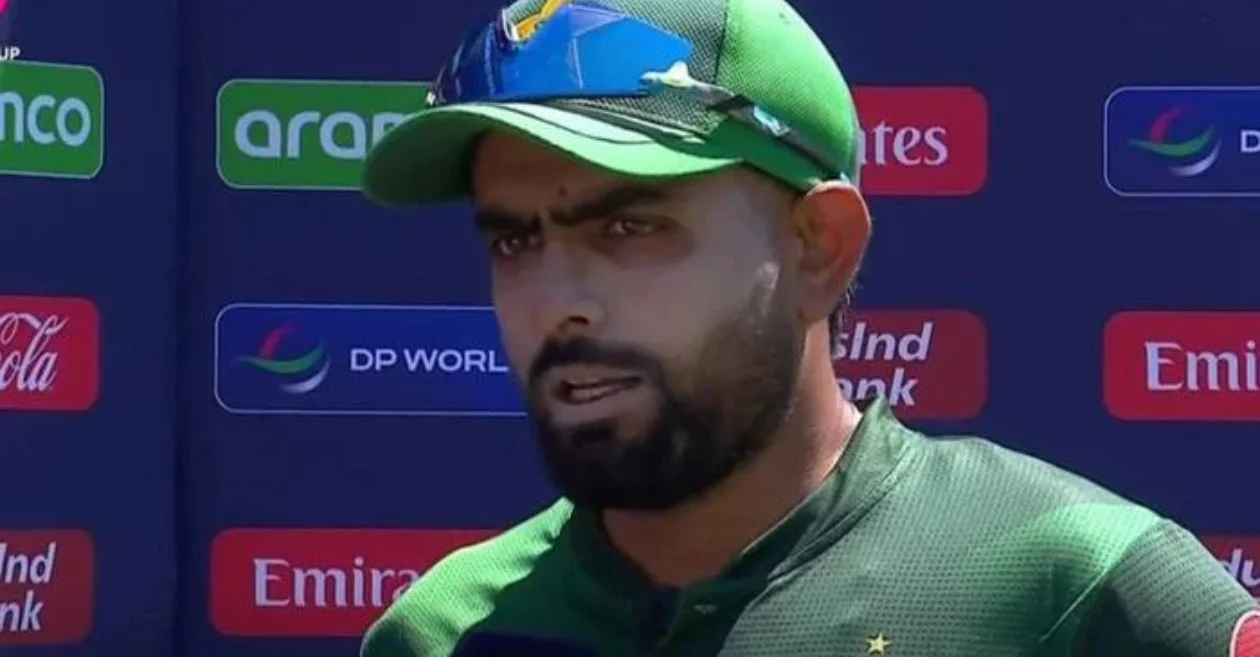Table of Contents
Pakistan captain Babar Azam rued missed opportunities following his team’s shocking defeat to the United States of America (USA) in a thrilling Super Over encounter at the Grand Prairie Stadium, Dallas.
Notably, it was Pakistan’s opening match of the T20 World Cup 2024.
Saurabh Netravalkar shines, Mohammad Amir struggles in Super Over
India-born left-arm pacer Saurabh Netravalkar was instrumental in restricting Pakistan to 159/7 with his economical spell of 2/18. The USA chase culminated in dramatic fashion as Nitish Kumar’s last-ball four off Haris Rauf tied the scores, sending the match to a Super Over.
Pakistan entrusted veteran pacer Mohammad Amir with the crucial Super Over. However, his bowling, which included wides and overthrow-inducing panic fielding, allowed the USA to post a challenging total of 18 runs. Netravalkar, returning for the Super Over, dismissed Iftikhar Ahmed for a low score. Requiring seven runs from the final ball, Shadab Khan failed to connect for the six that could have forced another Super Over, handing Pakistan a heartbreaking defeat.
Scenes from USA's stunning victory in Dallas 😍🇺🇸#T20WorldCup #USAvPAK pic.twitter.com/bTipZM8env
— ICC (@ICC) June 6, 2024
Also READ: Twitter erupts as USA stuns Pakistan to record a historic win in T20 World Cup 2024
Batting woes and missed spin opportunities for Pakistan
At the post-match presentation, Pakistan skipper Babar Azam pinpointed specific areas where Pakistan faltered. He highlighted the team’s inability to capitalize during the powerplay overs, stating, “In the first six overs, we didn’t capitalize. Back-to-back wickets always put you on the back foot, as a batter you need to step up and build partnerships.”
He further admitted that the spinners were unable to make inroads with wickets in the middle overs.
“We were not up to the mark in the first 6 overs with the ball. Our spinners also did not take wickets in the middle overs so these things cost us.”
USA outplays Pakistan in all departments
Azam acknowledged the USA’s superior performance, crediting them for playing better cricket across all three facets of the game – batting, bowling, and fielding. He also conceded that the pitch conditions, with a bit of moisture and uneven pace, played a role in the outcome.
“All credit to the USA, they played better than us in all three departments. Little bit of moisture in the pitch, it was also two-paced. As a professional you need to assess the conditions,” he concluded.
Pakistan will need to regroup quickly and address these shortcomings as they move to New York for the highly-anticipated clash against arch-rivals India on Sunday, June 9.
